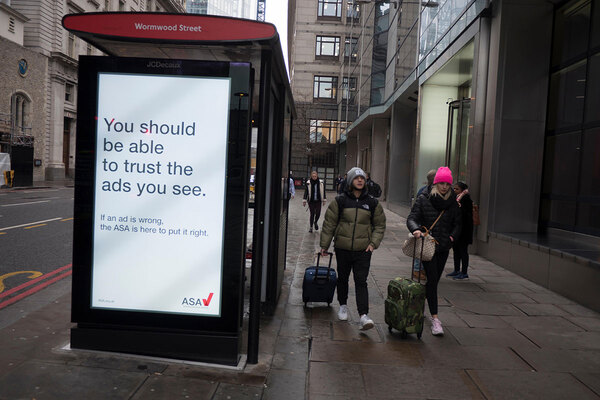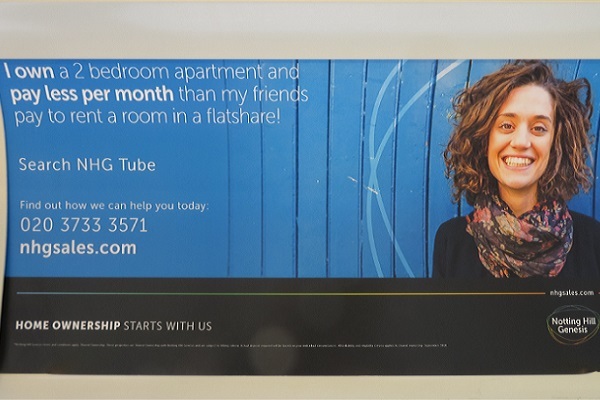You are viewing 1 of your 1 free articles
Advertising watchdog labels NHF shared ownership advert ‘misleading’ after investigation
The advertising watchdog has upheld two of three complaints of misleading advertising related to shared ownership on a website that was owned by the National Housing Federation (NHF) at the time.
Claims on sharedownership.net appeared in March 2021 that promoted the product as “another way to buy your home. You buy a percentage and pay rent on the rest.”
The website was owned by the NHF at the time, but ownership was transferred to agency Keaze in May 2021.
The advert made a number of claims about shared ownership and included a list of questions and answers that attempted to explain the product. It also contained a quiz that website visitors could take to see if shared ownership was right for them.
Shared ownership involves buyers purchasing an equity stake in a leasehold home of between 25% and 75%, and paying rent on the rest of the equity. They are also able to ‘staircase’ or buy up to greater chunks of equity over time.
But Shared Ownership Resources (SOR), an information platform launched by former shared owner Sue Phillips, took issue with three claims made as part of the advert, and lodged a complaint to the Advertising Standards Authority (ASA).
The first was that the claims of “part rent, part buy” and “it’s yours” were misleading because they exaggerated the level of ownership attained by those who took on a shared ownership arrangement.
A second claim that “you can usually staircase… all the way up to 100%” was also misleading because buying a home outright in this way is uncommon, SOR argued.
The campaign group also highlighted a third claim. It said the advert misleadingly omitted information relating to the costs of extending a lease, particularly once there were less than 80 years remaining on it.
In its ruling, the ASA, which applies the advertising code as set out by the Committee of Advertising Practice (CAP), upheld the first and third of the complaints.
In responding to the first complaint, the ASA said that it would be clear from the advert that the property could not be owned outright.
However, it said that consumers would interpret “it’s yours” to mean they have the same rights as someone who had bought their property in full. However, shared ownership means that housing associations also have the same rights as owners of the remaining equity.
It added that by omitting information such as the fact that shared owners would have less protection during repossession, the advert exaggerated the level of ownership.
On the third claim, it pointed to a lack of information and detail relating to the cost and process of lease extensions on some shared ownership properties.
The website claimed that a shared ownership lease would provide the additional information needed to understand the renewal process but the ASA described this as “unlikely”.
This is because the model lease published by Homes England, which landlords are strongly recommended to adopt, contains no provisions on the process and cost of a lease renewal.
The ASA said that as the site had dedicated sections related to what costs were involved in the renewal process, the advert should have made this information available.
For those reasons, the watchdog concluded that on points one and three, the advert was misleading and likely to mislead, and breached the CAP Code rules on misleading advertising.
The second claim was not upheld as the watchdog said it was unlikely to mislead consumers on the basis that it considered the claim would be interpreted as referring to the potential for buying more shares up to 100% ownership, as opposed to how often consumers managed to achieve that level.
Keaze could not be reached for comment, but it told the ASA that it believed that describing shared ownership as “part buy” and stating “it’s yours” was not misleading, was in line with how the government referred to the product, and was legally correct.
The ASA said that the advert must not appear again in a way that prompted the complaint, and it told Keaze “not to mislead by omitting information that was likely to be material to consumers”.
Lucy Grove, head of external affairs at the NHF, said: “Sharedownership.net was set up to help provide information and advice to the public about shared ownership homes as an affordable way to get a foot on the property ladder.
“The National Housing Federation handed over ownership of the website and the wider campaign to Keaze Ltd in 2021. Keaze will be implementing the changes needed to comply with the ASA’s ruling.”
Ms Phillips, who raised the complaint, said that the ruling has widespread ramifications and raises a number of troubling questions.
She added: “The most fundamental question is whether or not homebuyers, as consumers, receive all the essential information that is necessary in order to make informed purchase decisions regarding participation in the shared ownership scheme.
“I welcome the ASA ruling and report on establishing clear benchmarks for transparency in advertising of shared ownership. But it throws a spotlight on ongoing gaps in regulatory oversight.”
Ms Phillips called for shared owners to receive the same consumer protections as other homebuyers.
Sign up for our regulation and legal newsletter
Already have an account? Click here to manage your newsletters












